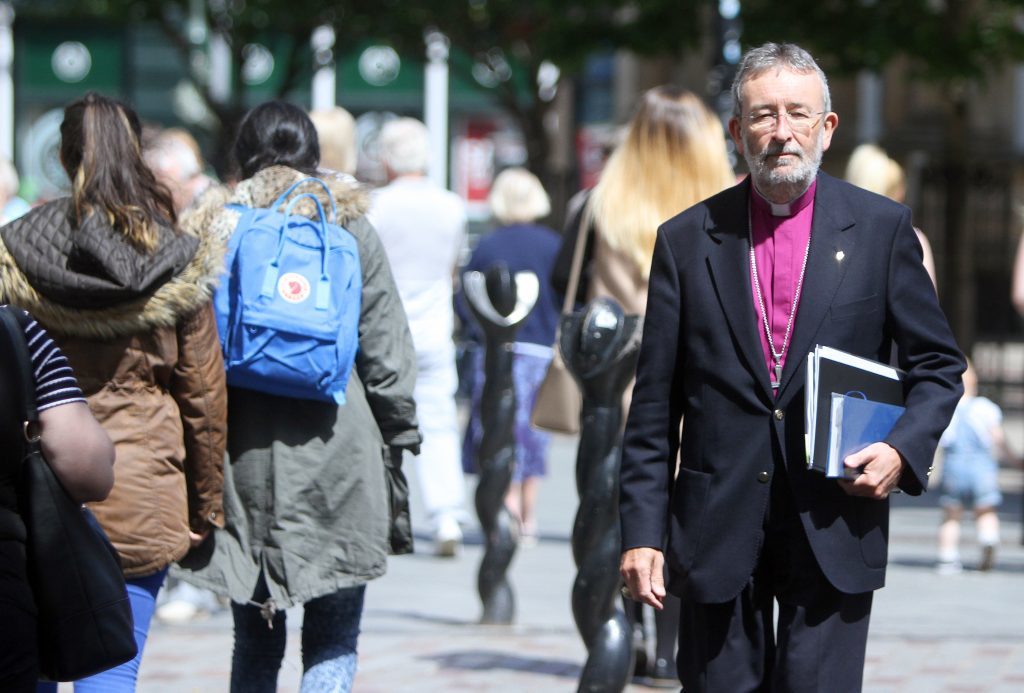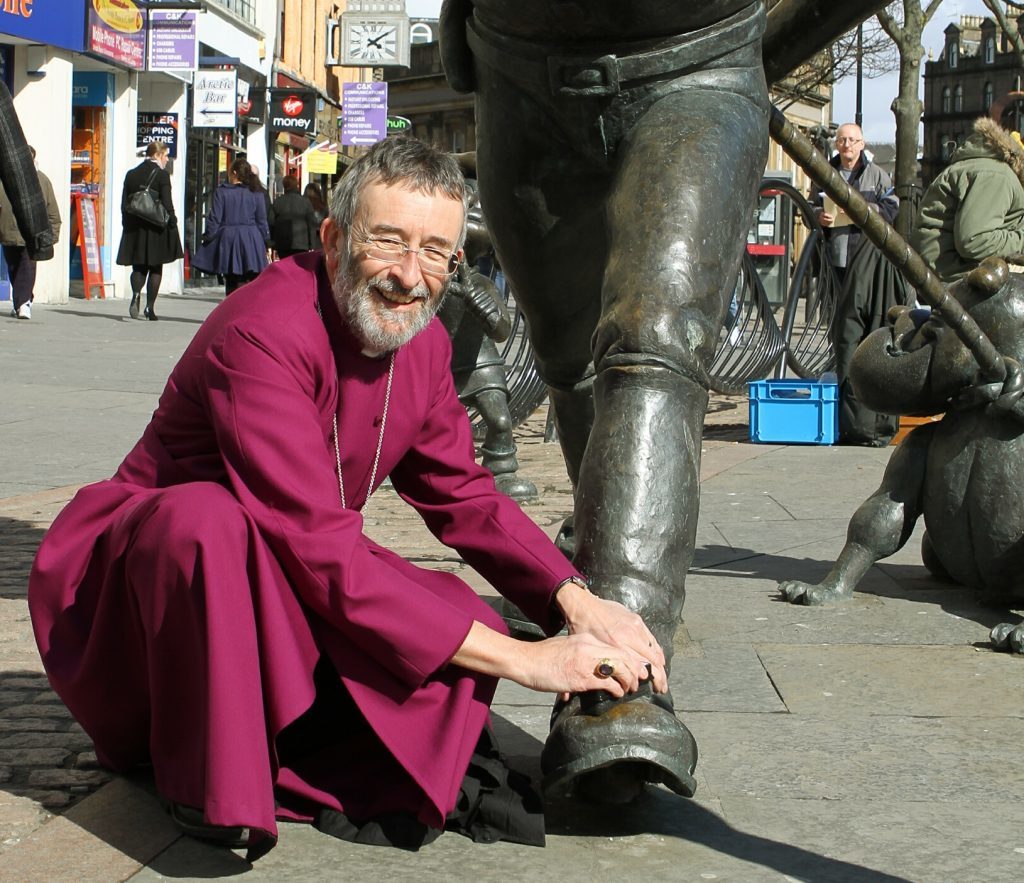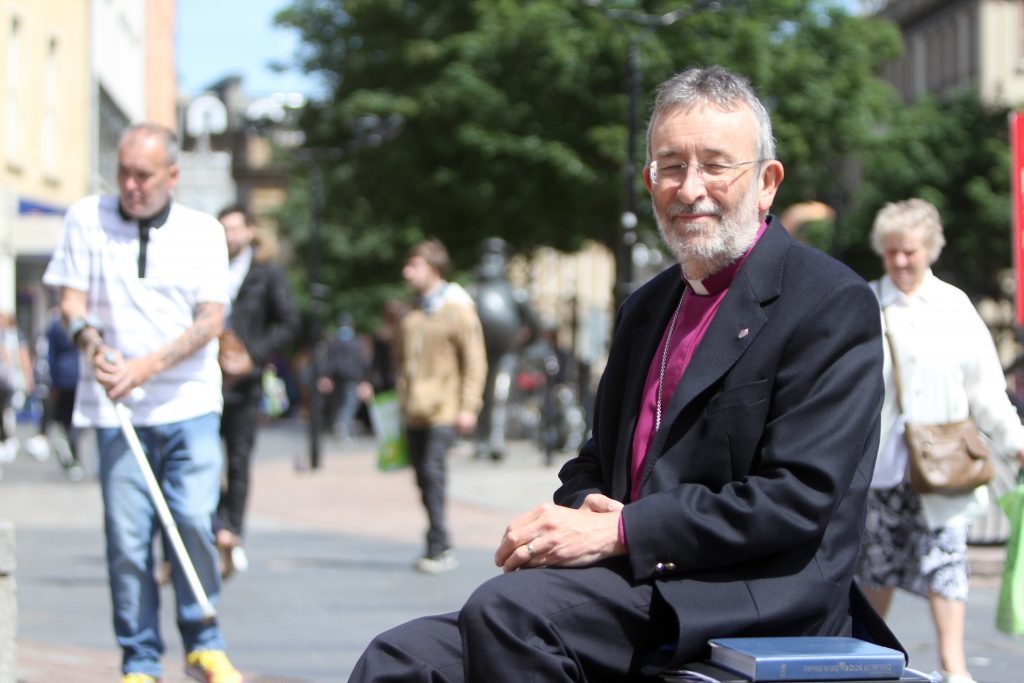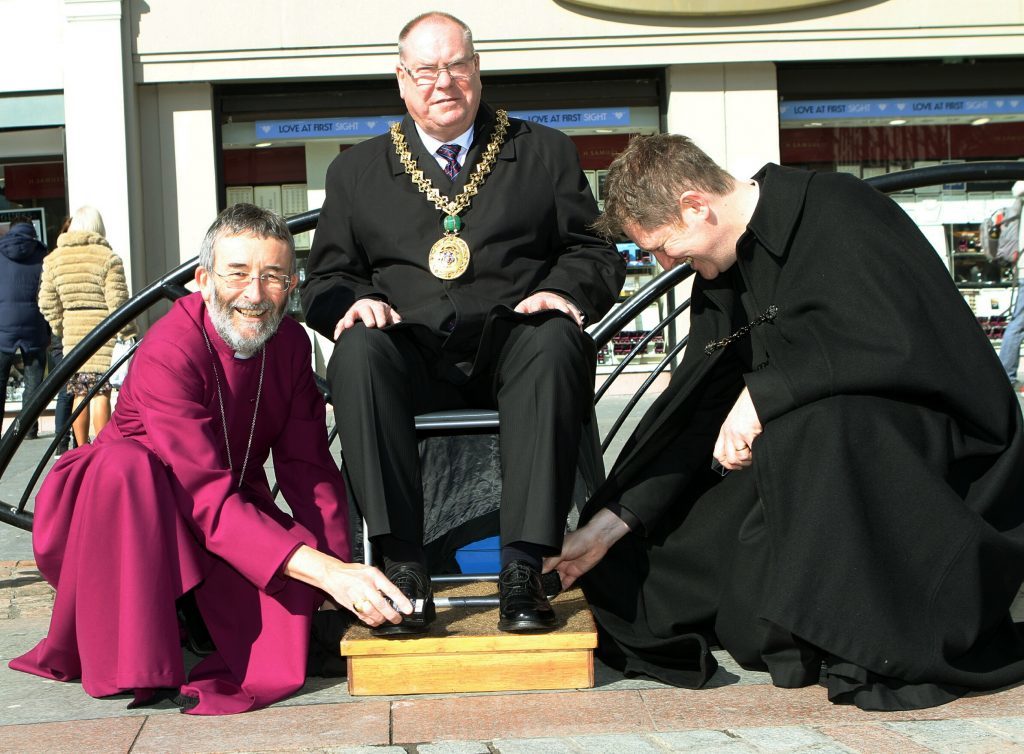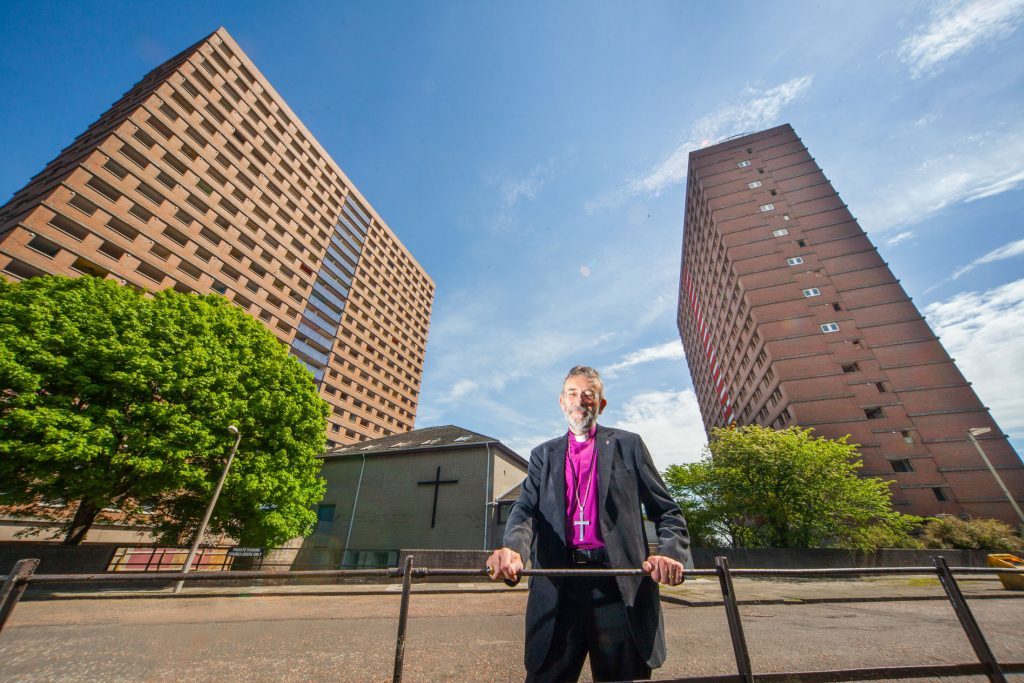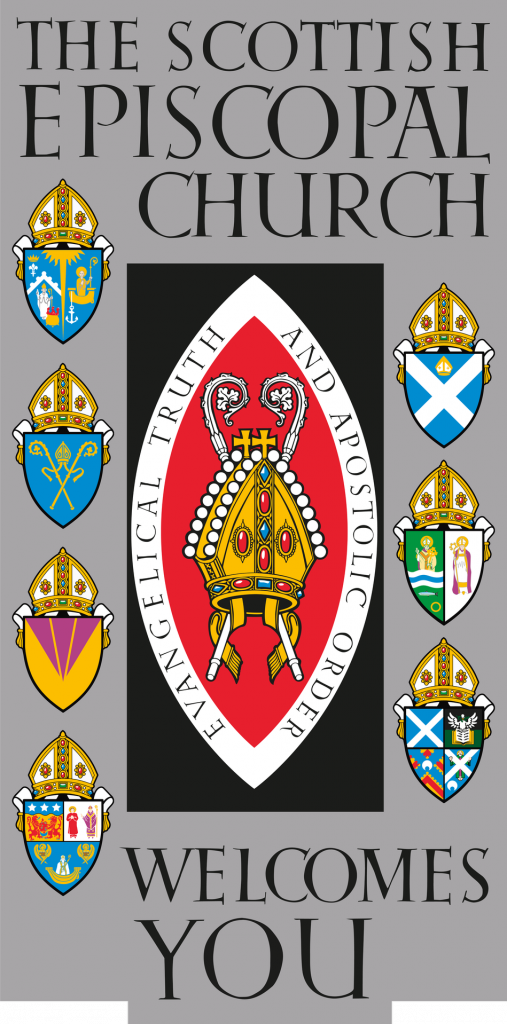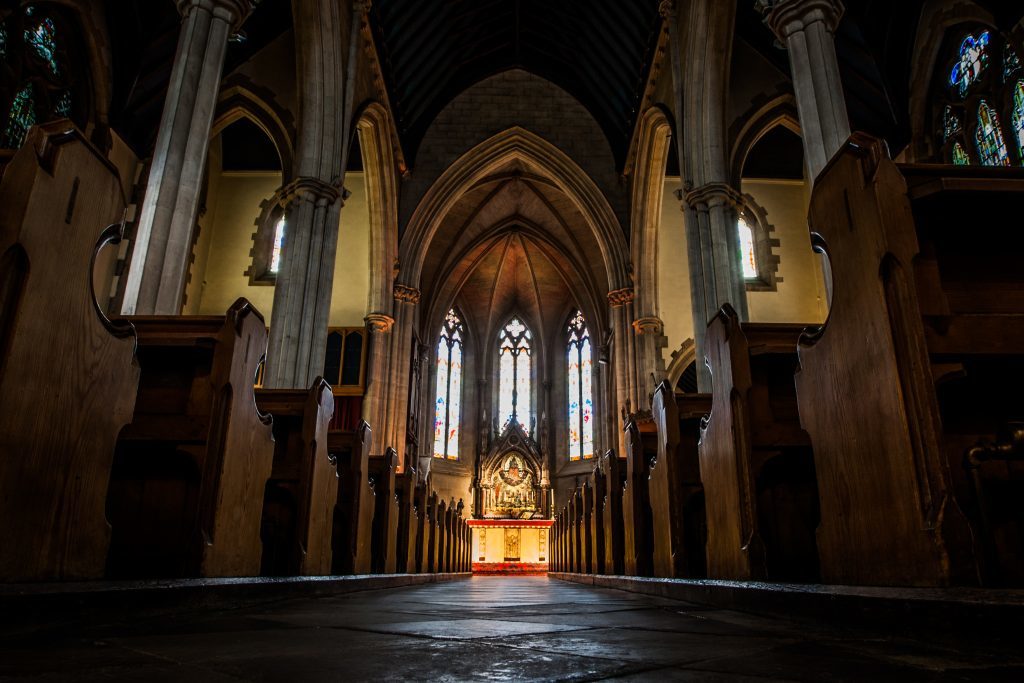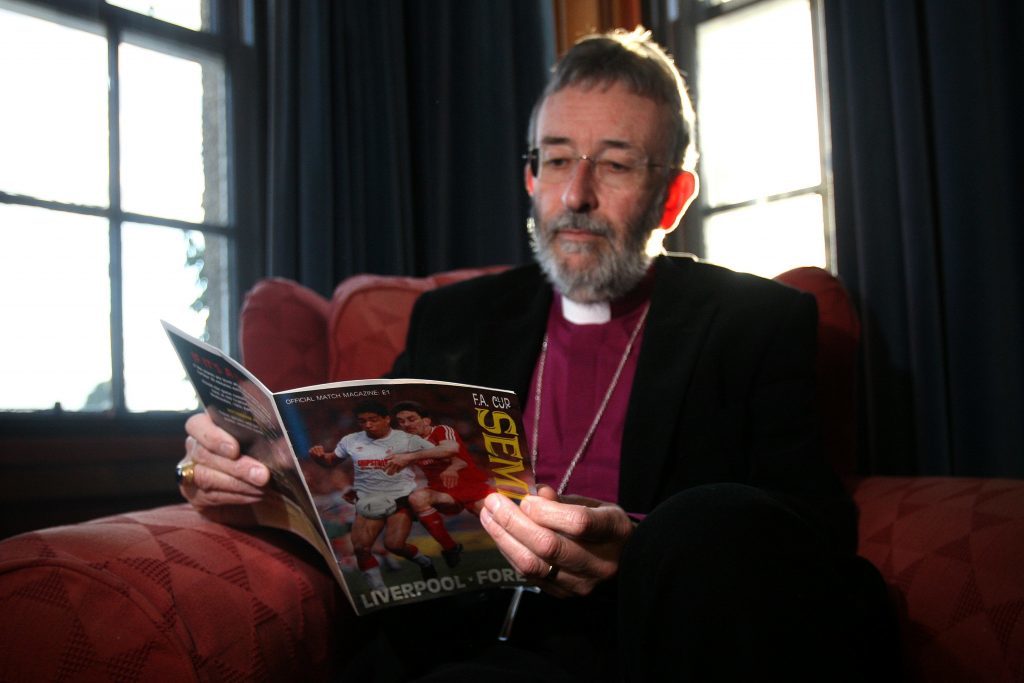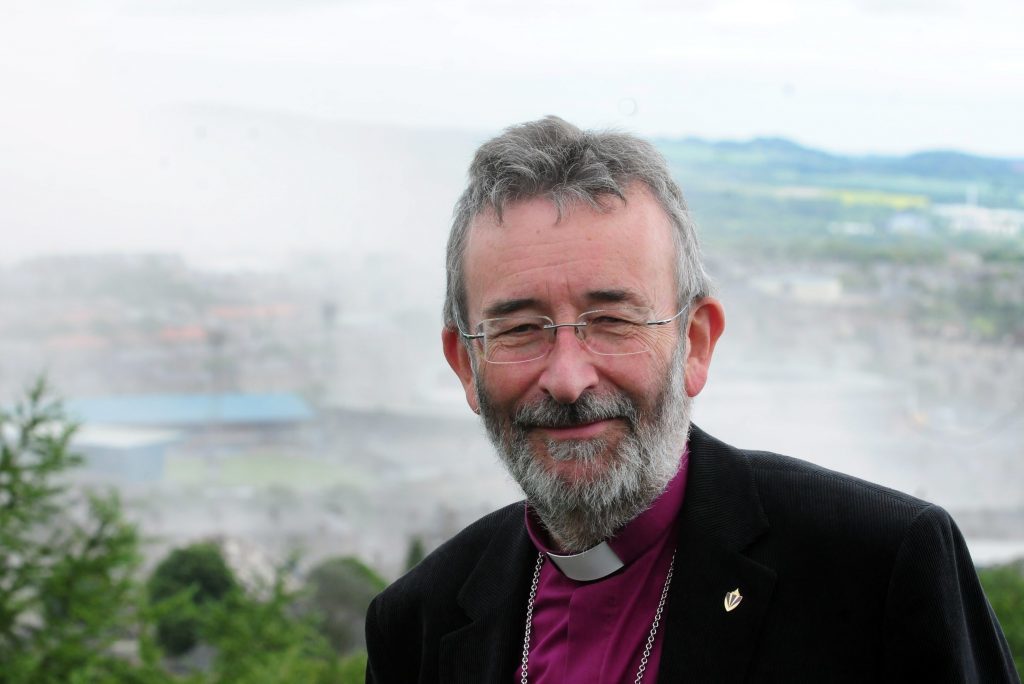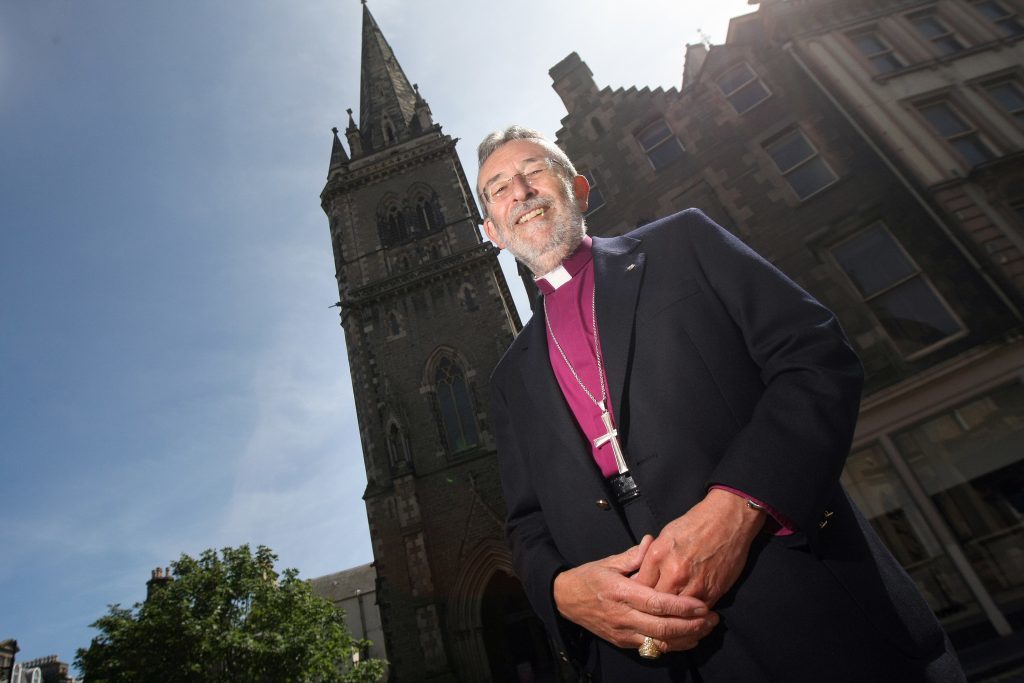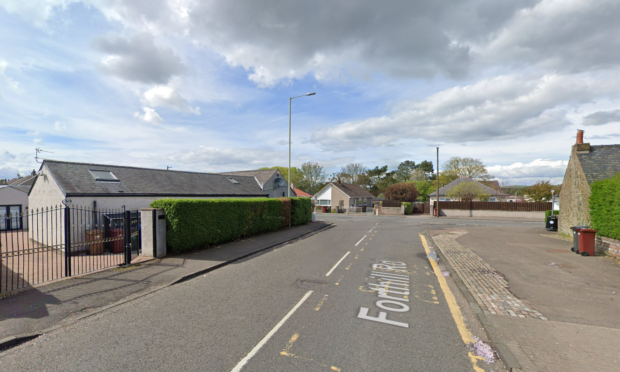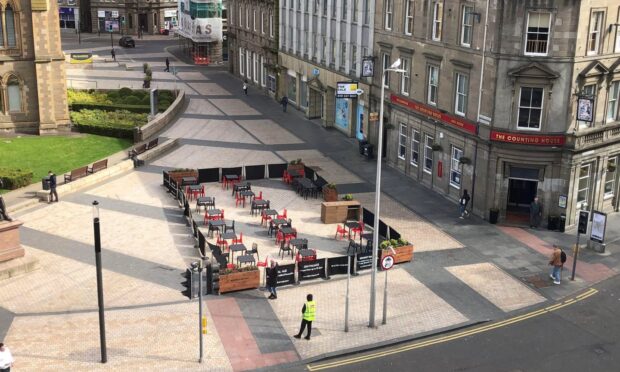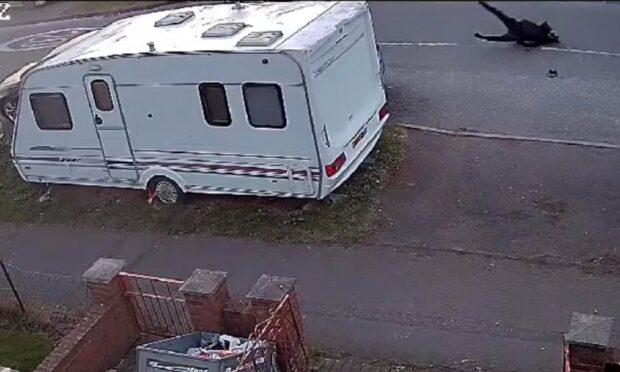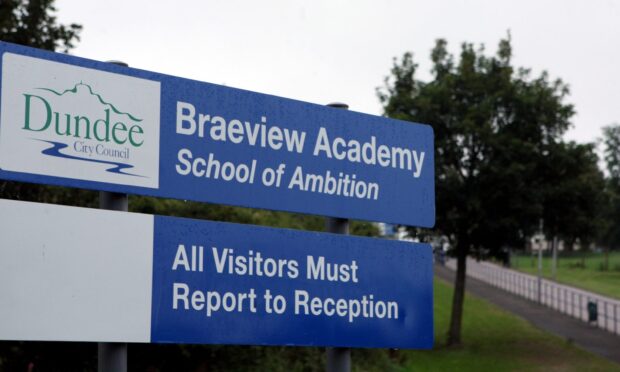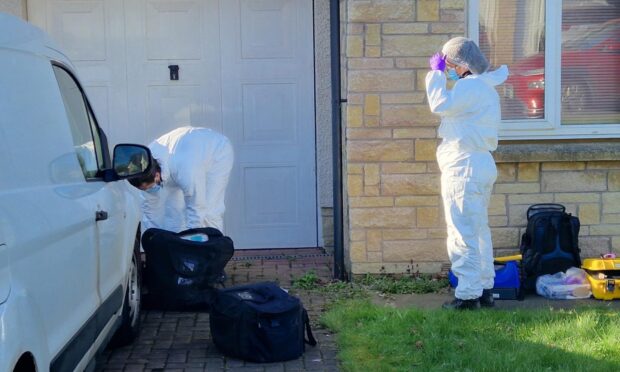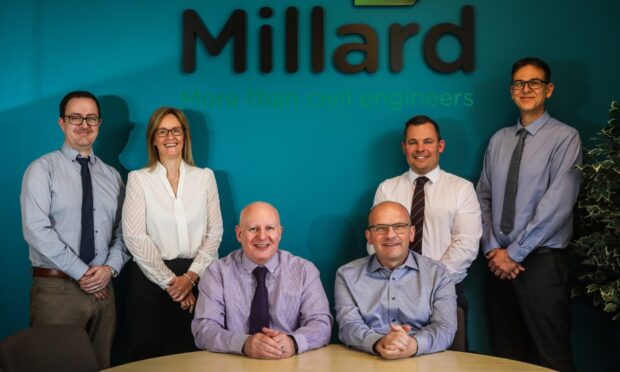The Right Rev Dr Nigel Peyton is retiring as Bishop of Brechin after a 41-year relationship with Dundee. Here he tells Michael Alexander about recent efforts to help vulnerable people in the city – and the challenges that remain…
When the Right Rev Dr Nigel Peyton was consecrated Bishop of Brechin in St Paul’s Cathedral, Dundee, in 2011, it returned him to the diocese and city where his ministry began in 1976.
While the London-raised Episcopalian priest spent much of his career in England, he retained a “deep affection” for the cathedral and its place in Dundee – and he appreciates it’s highly unusual for a priest to “book-end” a 41-year career in the same place.
Yet despite the passing of four decades, Bishop Nigel is struck that the “two Dundees” he experienced in the 1970s – polarising the city’s haves and have nots – are as identifiable now as they were then.
And while he thinks the development of the £1 billion Dundee Waterfront is “great”, he says a “huge challenge” remains to secure sustainable jobs, economic prospects and hope for many young people in a city blighted by child poverty, food banks, rampant drug and alcohol abuse and rough sleeping problems.
“In many ways there are similarities now to the 1970s,” reflects Bishop Nigel in an interview with The Courier ahead of his retirement on July 31 and a farewell service at the cathedral on June 25.
“We had a very gathered cathedral and congregation back then. But I discovered quite quickly that even in those times there was a sense that many people on the north side of the Kingsway were not really thought about.
“Today the situation remains very much the same.
“I think the V&A is great. I think the waterfront is great. I worry about what might be in the V&A.
“I hope it really is good enough quality and sufficiently attractive to the people of Dundee as well as trendy people who like to visit. I worry about the costs of running it. I think it’s great visually for the city.
“But if you ask me, what really matters is building up the economy so that there are jobs for young people and their families – sustainable jobs, hopes for the future and prospects for youngsters.
“I think we are very challenged here looking after youngsters in schools – I think there is a lot to be done giving our children the very best of education, and at the other end caring for the elderly. That’s a huge challenge.”
Born in London, Bishop Nigel, now 66, went to Edinburgh University and after a “strong calling” to the church, he trained as a priest before being sent to be chaplain, aged 25, at St Paul’s in Dundee – a move that he describes as “quite life changing really”.
He says Dundee has always had a “very vibrant congregation”.
It was when he returned as bishop in 2011, and took over an area stretching from the Carse of Gowrie almost to Aberdeen, however, that he truly sought to re-engage the “progressive, thoughtful and welcoming” church with the public.
As well as exercising oversight and pastoral care of the diocese, Bishop Nigel, who pioneered the Dundee Centre of Mission, has engaged in public affairs of the city and contributed regular articles for The Courier.
He has cleaned the shoes of Dundonians on Maundy Thursday – symbolically trying to make ordinary peoples’ lives better – has been chairman of the trustees of St Margaret’s Home for the Elderly and a governor of Abertay University.
While the traditional church still has place, new ways have been found to engage with the public including café churches, food banks, children’s activities and even meetings held in pubs to offer “unconditional” support to those in need.
“People who don’t perhaps go to church very often still have spiritual values or spiritual awareness or cravings,” he adds.
“We have to go and find them. We often find them in their need or sometimes in their leisure or where they are working.
“You’ve got to understand your locality. Where churches do well is where they are serving their communities’ needs. They are not trying to force people into something they are not trying to get involved with.”
Yet Bishop Nigel admits he’s “old enough and pragmatic enough” to know there will not always be solutions to life’s problems. “We have to keep working at it,” he says.
Last December he presented the ‘Time for Reflection’ in the Scottish Parliament at Holyrood and managed to remind politicians that government has a responsibility to care for the elderly.
While he tries to avoid party politics, however, and favours “competent government and progressive legislation”, it’s the recent decision of the Synod to allow gay marriage – the first church in the UK to do so – that has inevitably made headlines.
“Gay marriage is a discussion that’s going on in all churches,” he says.
“I think we just so happened to be at a stage with it. We’ve spent four years considering it. I’ve already described the Scottish Episcopal Church as progressive and thoughtful.
“So it would hardly be surprising if we didn’t want to move forward in that area.
“That said not everybody agrees with the decision but what we have managed to achieve is to move forward with the maximum unity within diversity and that’s something to treasure really.
“Families and organisations don’t always have to agree about everything all of the time.
“But it’s a measure of who we are as a church that we’ve found a way forward that hasn’t split the church massively. So I think we can be proud of that achievement.”
Bishop Nigel says it’s controversial that the church does not just work with local authority referrals when it comes to food banks – support is offered unconditionally and this, he admits, means that sometimes they might be taken advantage of.
However, he adds: “We don’t actually find that a serious issue and it better reflects who we are as Christians.
“At the end of the day we don’t want to make judgments about the needs of people.
“Of course there’s a discussion to be had about why are they in that situation? Who’s to blame? Is it themselves? Is it society? Is it government?
“But we meet need where we find it. It better expresses our theology and our beliefs.
“I know it sounds a bit twee, but we ask, what would Jesus do in that situation? “And I think we get a pretty quick answer.”
Bishop Nigel and his wife Anne are looking forward to retirement near Lincoln, closer to children and grandchildren, and enabling him to “once again become a season ticket holder at my beloved and infuriating Nottingham Forest Football Club”.
He will never forget Dundee, however, and will visit to keep tabs on its re-development.
He adds: “I hope I’ve contributed twice both as a young man and as a senior leader to the life of the city.
“It’s been a huge privilege and pleasure. I love Dundee people. I love the crack on the 22 bus!
“I love the friendliness of people in Dundee and the region generally.
“My hope is that the diocese has flourished under my leadership and I’ve left things better than when I found them. It’s for others to judge I guess!
“And I hope I’m handing on a work in progress! I’m not unhappy with that. I’m happy to hand things on and let others shape how they need to be. There’s never a perfect time to retire and you have to at some point.
“I hope I’m handing over a hopeful and confident diocese that has ideas serving the region into the future.”
The process for finding and electing a new bishop normally takes about six months.
It involves initially the preparation of a short-list of candidates and then an election by representatives of the Diocese in questions.
The process begins within 21 days of the vacancy arising, by the primus issuing a mandate for an election.
*The farewell service and reception to mark Bishop Nigel’s retirement takes place at 4pm on Sunday June 25 in St Paul’s Cathedral, Dundee. All are welcome to attend.
